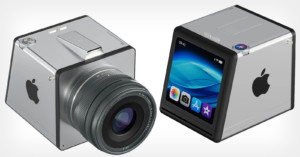
This is What a Standalone Apple Camera Might Look Like
Concept designer Antonio De Rosa of ADR Studio has created what he believes is a route Apple might take if it were to design a standalone camera.

Concept designer Antonio De Rosa of ADR Studio has created what he believes is a route Apple might take if it were to design a standalone camera.
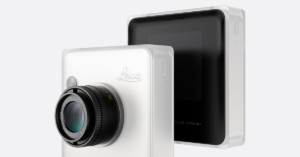
Good photos have become commonplace. Smartphones have demystified camera technicalities in the past decade, and its pervasive adoption has democratized photography for mass consumers. Since the first known photograph was made in 1820, camera functions evolved significantly to compensate for human error.
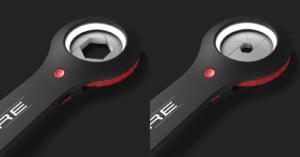
Industrial designer and photography enthusiast Jordan Steranka wanted to design an elegant and flexible wrench that could be adjusted to a wide range of diameters, so he turned to the world of camera lenses. His concept "Aperture Wrench" is what resulted.

Panasonic recently collaborated with German design firm WertelOberfell in creating a series of case designs for the Lumix DMC-GM1 mirrorless camera. The cases were created with a 3D printer and were inspired by three "design epochs."
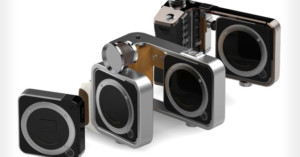
Most high-end digital cameras (not named Ricoh) aren't designed to be modular. If you want a new sensor in your camera, you'll need to buy an entirely new camera. Want to use a different lens system? You're out of luck.
What if there existed a universe in which all the major camera companies came together to form an extremely versatile modular digital camera? That's what Korean designers Dae jin Ahn and Chun hyun Park are attempting to answer with their concept camera design, called Equinox.

Designer Jean-michel Bonnemoy thinks that traditional camera designs are wrong, and that form factors were driven more by technical necessity (e.g. the need to hold film) than by ergonomics and ease of use. Instead, he proposes that modern digital cameras should be cylindrical and resembling a handheld telescope. A lens cap is built into the front, a viewfinder and LCD screen are built into the back, and the controls are in easy-to-access locations on the side of the camera.
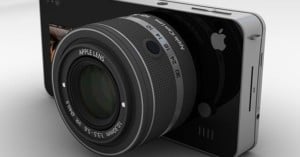
The Apple iCam is a concept camera by Italian designer Antonio DeRosa that imagines a future where cameras are modular and powered by smartphones. Smartphones have already invaded the compact camera market in recent years, but their small lenses and sensors keep them from being seen as suitable alternatives to more advanced cameras. The iCam camera changes that by adding a large sensor and interchangeable lens system to the mix. Simply attach your iPhone 5 to the case and you'll have yourself a mirrorless interchangeable lens camera with a huge LCD screen, fast processor, internet connectivity, and countless photo apps!
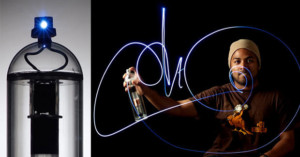
Light painting is sometimes called light graffiti, but who does graffiti with flashlights? Halo is a neat light-painting tool designed by Aïssa Logerot that makes painting with light feel much more natural for people accustomed to creating... less-legal forms of art. Shaped like an aerosol can of spray paint, the tool includes interchangeable LED lights for painting in different colors and a battery inside that recharges when the can is shaken.
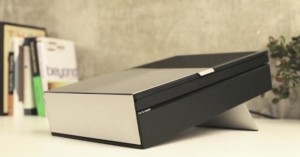
If Apple ever got into the photo printer business, this SWYP …
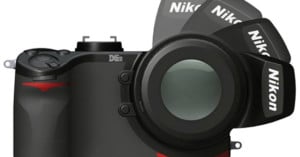
Illinois industrial design student Ned Mulka created this Nikon D5R concept camera for his senior thesis design project. While the design itself may be pretty iffy for a camera, the main idea behind it is pretty interesting -- instead of having to rotate the camera itself for portrait orientation photos, why not only rotate the sensor, mirror, and viewfinder? An even crazier design would involve only rotating the sensor, allowing the camera to shoot any orientation without having to change how you hold the camera -- though this would probably be an engineering nightmare for the camera makers.
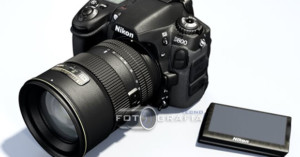
TechnoFotografia created a concept design for the yet-to-be-announced Nikon D800 DSLR. One of the novel features dreamed up for the design is a LCD screen that can be detached from the camera and used remotely (seen above). If this were to ever exist on a DSLR, losing the screens would be an issue, and replacing them would likely cost a fortune.
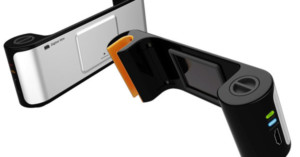
One of the biggest hits this past April Fool's Day was RE-35, a futuristic cartridge that transforms any 35mm film camera into a digital one. As the website went viral, many people actually thought it was a real product, prompting the design company behind the design to issue a notice on the website explaining that it was fake. As stated by numerous readers, digital film isn't exactly a new idea -- an actual company called Silicon Film attempted this product about a decade ago (and even gave a demo at PMA 2001) but ran into "storage, battery, environment and sensor size limitations".
Judging from the response to this April Fool's Prank, however, it's pretty clear that this is an idea that would be enormously popular with photographers if it were to actually exist and perform reasonably well. The above illustration is another concept design for "digital film", created by students of Hongik University for the iF Design Awards this year.
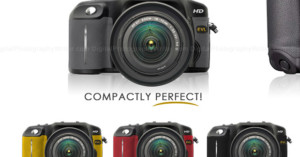
Canon recently indicated that due to consumer demand for smaller cameras, they’re working …